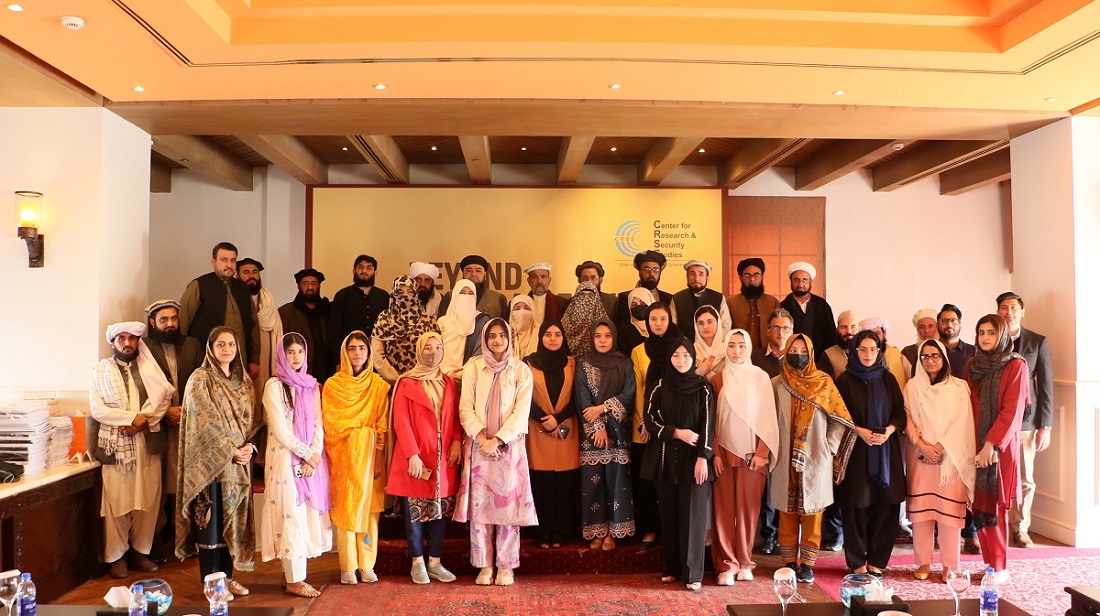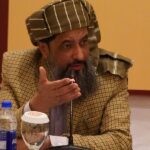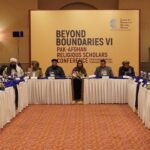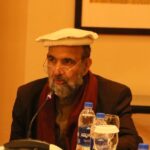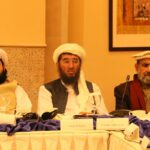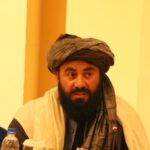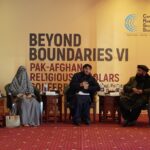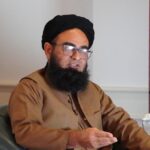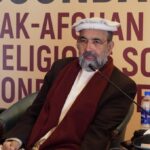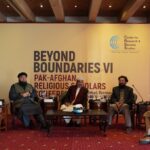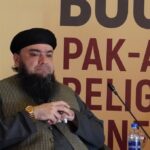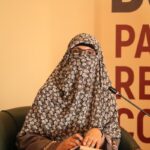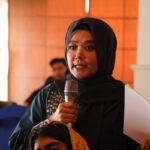Introduction
The 3rd round of the Pak-Afghan Religious Scholars Conference brought together 16 Pakistani (3 females and 13 males), and 10 Afghan scholars (2 females and 8 males) to discuss and propose solutions to the recurring challenges in bilateral relations and the region. The paramount issue of Afghan girls’ education took precedence, alongside focused discussions on peace and security, economic connectivity and trade, and the refugee and humanitarian crisis. Besides the scholars’ deliberations, the conference also facilitated an interactive exchange between Pakistani and Afghan students of various disciplines and religious scholars, led by Dr. Qibla Ayaz, the Chairman of the Council of Islamic Ideology (CII).
Critical Analysis
The discussions provided a comprehensive analysis of the Pak-Afghan region’s pressing issues, emphasising the urgent need for action and cooperation. The recurrent focus on education, particularly girls’ education, underscored its pivotal role in shaping Afghanistan’s future. However, despite rhetoric advocating for inclusive educational policies, concrete steps toward implementation remained elusive. The discourse also shed light on the economic challenges exacerbated by border closures and trade restrictions, emphasising the imperative for revised policies to alleviate hardships and foster regional economic integration. Additionally, in the wake of the refugee/migrant crisis, the participants underscored the need for sustained international support and proactive measures to address their plight. While discussions on peace and security highlighted the importance of bilateral relations and regional cooperation, scepticism persisted regarding the efficacy of current approaches in achieving lasting stability. The role of media was also deemed crucial in promoting bilateral ties and improving perceptions. Overall, the discussions underscored the pressing need for tangible actions to address the grave challenges facing the Pakistan- Afghanistan region.
Additionally, insights from the participants indicated that in the absence of legal frameworks, policies formulated by representatives of the Afghan government may lack sustainability, as human-made policies are subject to change based on individual notions and beliefs. Therefore, to ensure sustainability and efficacy, representatives of the IEA must work towards governing the country according to an agreed constitution and legal framework.
Recommendations
The two-day dialogue culminated in the formulation of the following concrete set of joint recommendations, proposing solutions to the key issues discussed:
1. Security and Counterterrorism
Countering Insecurity and Extremism: Prioritize addressing the surge in insecurity and terrorism in both Pakistan and Afghanistan through sustainable measures.
International Cooperation: Offer counter-terrorism assistance to IEA – more serious efforts could be seen if the de facto rulers get legitimacy/if sanctions are lifted.
2. Bilateral Relations and Diplomacy
Promoting Cordial Ties: Continue efforts to promote cordial ties between Pakistan and Afghanistan through religious diplomacy and dialogue platforms like Beyond Boundaries. This includes providing state patronage for religious diplomacy initiatives so their messages are accepted and materialized into state policies. Also, consult and engage with influential figures who have the expertise and outreach to contribute to resolving bilateral issues effectively.
Cross-Border Cooperation: Prioritize resolving bureaucratic hurdles that hinder people-to-people ties and mobility across the border regions.
Border Committee Formation: Form a border committee (which can be called BORDER SALAAMTI COMMITTEE) comprising eminent religious scholars from both sides to address border affairs effectively.
Abide by Doha Agreement: While stakeholders advocate for the lifting of sanctions, it’s imperative for the de facto rulers to fully comply with all the terms outlined in the Doha Agreement. This commitment is crucial for their eventual integration into the global community.
Goodwill Diplomatic Gestures and Exposure Visits: Invite representatives from the Islamic Emirate of Afghanistan (IEA) to visit Pakistan to observe successful models in education and healthcare.
Uniformity in Foreign Policies: Keep advocating for consistency and uniformity in foreign policies to ensure that state-to-state and people-to-people ties remain cordial.
3. Humanitarian and Socioeconomic Development
Addressing Humanitarian Crisis: Focus on addressing the humanitarian crisis in Afghanistan, including health, economic, and employment challenges, to prevent further instability. Demand for lifting of sanctions to ensure that these issues are resolved.
Addressing Brain Drain and Empowering Youth: Strengthen government-public relationship to provide ample opportunities for the youth. The IEA should prioritize creating an enabling environment where both male and female youth can flourish, reducing the likelihood of them leaving the country. Additionally, seek international support to train unemployed Afghans, particularly women, and create remote work opportunities to harness their potential and contribute to the country’s development.
Improving Healthcare: Support Afghanistan in establishing a self-sufficient healthcare system to ensure access to essential services for all citizens, reducing the need for medical travel to other countries.
4. Women’s Rights and Education
Promoting Women’s Education: Advocate for the reopening of girls’ schools and the empowerment of women through education, aligning with Islamic principles and international norms.
Open Door Admission Policy and Free Tuition for Afghan Students: Introduce policies promoting open-door admissions for Afghan students in Pakistani universities. Additionally, provide scholarships or free ships to alleviate financial burdens and ensure equal educational opportunities for Afghan students.
Religious Scholars’ Endorsement: Encourage religious scholars to promote women’s education and rights through sermons and religious teachings, fostering a perspective change in society.
Role of Religious Seminaries: Utilize religious seminaries to integrate contemporary education alongside religious teachings, promoting a holistic approach to education and knowledge.
Education Reform: Support Afghanistan in achieving a standardized education system that emphasizes both religious and contemporary education, empowering future generations with the skills and knowledge for socio-economic progress.
Accept International Assistance: Offers must be taken up from countries like Turkey and Indonesia concerning the normalization of women’s education in Afghanistan (Turkey offered buses, and Indonesia offered curriculum training for teachers).
Telecommunication Infrastructure and I.T.: International tech companies and cellular service providers should support building telecom infrastructure in rural Afghanistan to ensure that distance learning programs can be implemented effectively, addressing the loss of academic years for girls and women.
Interim Online Platform for Education Support: Implement a comprehensive strategy to address the urgent need for education support in Afghanistan by creating a dedicated online portal offering teaching services for various classes and academic disciplines, serving as a vital stopgap measure to facilitate access to educational resources.
5. Media and Public Discourse
Countering Propaganda: Combat negative narratives and propaganda through media platforms by promoting positive discourses on brotherhood, peace, and bilateral cooperation.
Promoting Unity: Encourage academia, think tanks, and media outlets to emphasize narratives of unity and brotherhood between Pakistan and Afghanistan, countering divisive rhetoric.
6. Economy and Trade, and Refugee Affairs
Preconditions for Peace: Emphasize the need for a stable economy and economic cooperation as a prerequisite for achieving peace.
Visa Regime and Border Policies: Facilitate easier movement of people and goods across the border through a mechanism where mutual concerns, understanding, and friendly visa regime guide border policies.
Refugee and Migrant Policies: Address the challenges faced by Afghan refugees and migrants, ensuring humane treatment and support for those returning to Afghanistan.
Refugee Support and Repatriation: Establish a joint commission to engage with and garner support from the global community for refugees, where it also facilitates repatriation by coordinating with Afghanistan to ensure their acceptance and promote international cooperation in this endeavor.
7. Social and Academic Interventions
Grassroots Interventions: Organize dialogues and interventions at the district level (especially in tribal and bordering districts) to address local issues and promote perspective change, i.e. to promote peace and counter extremist narratives.
Investment in Experts and Academia: Allocate resources to invest in specialists and establish or support institutions dedicated to studying Afghan issues.
Summary – Day 1
Bilateral Developments and Regional Peace and Security
“The past year has been very critical for the Pak-Afghan region and relations,” remarked Sameena Durrani, head of programmes at CRSS, as she opened the floor for discussions. She highlighted the surge in terrorism since the Taliban takeover of Afghanistan. Durrani noted, “Since the Taliban takeover, Pakistan has observed a surge in insecurity and terrorism. Afghanistan had 200-something terrorism-related deaths whereas Pakistan experienced over 1500 fatalities in such incidents, Khyber Pukhtunkhwa (KP) and Balochistan remained most affected.”
Maulana Tayyab Qureshi, reflecting on the strides made through CRSS’s initiatives, highlighted the substantial progress achieved over the past two years. He underscored the profound respect and fervour Pakistani ulema and public held for the Taliban, a sentiment rooted in historical intervention and ties. “We were with Afghans when the Russian occupation happened, and we were with them when the US left.” Qureshi acknowledged the significant loss of lives endured by both nations “prior to and during Taliban rule,” emphasizing the commendable role played by religious scholars from both sides in such times to discuss and address mutual concerns.
Pointing towards another serious challenge for the region, i.e., brain drain, he said, “A pervasive sentiment of uncertainty gripped the region, driving many youths, particularly in Afghanistan, to seek opportunities elsewhere. We should recognize the urgency of addressing these intertwined challenges to prevent further upheaval and provide hope for the disillusioned youth on both sides of the border.”
Reflecting on CRSS’s Kabul visit in August 2023, he stated, “Meetings with influential figures like Amir Mutaqqi, Zabiullah Mujahid, alongside former Afghan officials Hamid Karzai and Omar Zakhilwal, showcased CRSS’s commitment to inclusive engagement, fostering constructive dialogue among multiple stakeholders for conflict resolution.”
Hakim Abdul Mujahid said, “Afghanistan is currently undergoing one of its most severe humanitarian crises. While fatalities from terrorist attacks have decreased, the nation is grappling with health, humanitarian, and economic challenges. The World Food Programme (WFP) has repeatedly emphasized that millions of Afghans are living in poverty, with many below the poverty line.” He added that under such circumstances, lifting sanctions on Afghanistan and the Taliban is crucial, as doing so would enable the effective handling of such crises. “Moreover, integrating the Taliban into the global community is essential for ensuring the eradication of terrorist threats and organizations operating across borders.”
Mujahid added that confidence-building measures are necessary from both sides. “Diplomatically, we haven’t been transparent and pragmatic; we’ve mainly offered lip service. There’s been plenty of diplomacy but little genuine dialogue. Within governments, we need to present our recommendations to those genuinely interested in resolving issues. We must put ourselves in others’ shoes. I urge my Pakistani friends that when they come to Afghanistan for discussions, they must understand our concerns and initiate dialogue with empathy.”
On extremism, he said that it has been a mindset since the Russian occupation. “It’s not easy to eradicate them in a short time. Extreme narratives aren’t limited to one group; it’s an ideology which preaches that violence will solve their problems.”
Maulana Jamaluddin stated, “During my visit to Afghanistan with Amir Molana Fazul ur Rehman, we conveyed Pakistan’s concerns to the Taliban leadership. We were warmly received by everyone we met. They share the belief that Afghanistan should progress and develop. Initiatives in economics and social programs have been launched to contribute to Afghanistan’s reconstruction. We advised them to adhere to global norms of peace and social contracts. The Afghan side also extended invitations for future engagements.” He said that he couldn’t specify the concrete outcomes of the visit but personally felt it was successful and proved auspicious.
He remarked on the stringent visa regulations impacting border residents, stating, “Two siblings residing on opposite sides of the Angoor Adda can see each other’s houses but are unable to meet. If this doesn’t signify an exclusionary policy, I’m not sure what does!”
Dr Qibla Ayaz remarked on the uniqueness of the gathering, highlighting the participation of scholars from both religious and progressive political backgrounds. He praised CRSS for convening such a diverse forum and expressed his strong advocacy for religious diplomacy, citing his involvement in recent delegations to Kabul, Saudi Arabia, and OIC meetings focused on girls’ education. Ayaz emphasized the importance of understanding issues to address them effectively, stating, “We must know that to address issues, we need to understand them.” He also applauded the role of CRSS in deciphering issues categorically for an inclusive and concrete discourse leading to policymaking.
Regarding Afghan issues, Ayaz asserted that Afghans are better equipped to explain their concerns. He emphasized consulting individuals like Maulana Fazal Rehman, whom he described as a leader with a global understanding due to his ethnic background and cultural relevance and understanding.
He called for prioritizing the resolution of issues in border regions and addressing Afghanistan’s healthcare crisis to ensure self-sufficiency and reiterated the sentiment that Afghans abroad would prefer to return if the socioeconomic situation improved. He also recommended that Muslim countries and neighbours like Pakistan should help Afghanistan establish a standardized education system to produce more leaders and skilled individuals.
Hamid-ul-Haq Haqqani, highlighting his family and institution’s role in peace, said, “My late father, Maulana Sami ul Haq Shaheed, met Imran Khan six years ago. Khan was surprised that my father had presented all the concerns of Afghans in the meeting. My father emphasized that Afghans are our brothers. People often wondered whether my father was Afghan or Pakistani. This is the extent to which we have advocated for our Afghan fellows.”
He further said that it was important to clarify that Dar ul Uloom Haqqania had never preached politics. All students, including former Taliban members, received religious education. “We have been advocating for the normalization of girls’ education openly. During NATO’s presence, we supported the Taliban, hoping that Afghans would have sovereign rights over their land. We never desired Afghanistan to be ruled by outsiders, and we wish the same for Pakistan. We do not have the right to interfere in Afghanistan’s internal matters, he added.
“We want to engage in dialogue with all stakeholders, including the Taliban, opposition figures, Karzai, Hekmatyar, religious scholars, Pakistani government representatives, and others, to discuss and propose solutions to the issues”, he concluded.
Khaliqdad Haqqani said, “Pakistan-Afghanistan relations have been shaped by each government’s strategy over the past 45 years. However, this approach has led to mistakes, and there is a need for religious scholars to advise governments on sustainable long-term solutions.”
Highlighting positive developments under the Taliban rule and the prospects they present, he added, “They (Taliban) have restored peace and neutralized the armed/militant groups. There’s an opportunity for Pakistan to engage with legitimate power and for the Taliban to bring about nationwide changes, including tackling extremism and strengthening economic ties with neighbours through trade.”
Afghanistan’s integration into the global community hinges on access to adequate and standardized education, both religious and technical. This point should be emphasized in discussions with decision-makers from both countries.
Maulana Khanzeb said, “The stability of Afghanistan heavily depends on the cooperation and actions of its neighbouring countries. Both Pakistan and Afghanistan require comprehensive and inclusive internal and external policies to navigate these challenges effectively.”
He further stated that the pursuit of peace has cost the lives of numerous religious scholars, underscoring the urgency for timely and diplomatically driven resolutions to the sociopolitical issues plaguing the region.
“Extremism in Afghanistan has not only stifled freedom of speech but has also led to the persecution of individuals with dissenting opinions. Some factions even denounce democracy as kufr (infidelity), although it inherently promotes respectful expression of diverse viewpoints”, he concluded.
The role of media was also deemed crucial in shaping public narratives and perceptions regarding Pakistan-Afghanistan relations. Several speakers noted that the media often sensationalizes negative narratives, which can hinder efforts towards unity and better bilateral ties. There were concerns raised about the prevalence of fake news and propaganda, which adversely affected the relationship. However, there was also recognition of the importance of utilizing media platforms to promote positive discourses, brotherhood, and solutions for improving relations.
Closing the session, Dr Qibla Ayaz said that there is a need for Pakistan to invest in academia and produce specialists in Afghan affairs, citing the passing of the late Rahimullah Yusufzai as a loss to the field. “Through understanding, learning, and listening, we can pave the way for peace and stability in the region. Developing expertise on Afghanistan will enable us to adopt a realistic and empathetic approach towards Afghanistan and its people.”
Human Rights – Girls’ Education and Women’s Employment
Abida Majidi emphasized, “Islam encourages and has made the pursuit of knowledge obligatory for both men and women. Afghanistan’s competition with the world should be based on intellect and education rather than weapons.” She warned of dire consequences if the education ban persists, with girls and women suffering and facing depression. Majidi added that scholars have an immense responsibility concerning advocacy for girls’ education and called for allied efforts to lift the ban to prevent the prevailing bitter sentiment towards rulers governing on religious principles.
Halima Nasiry acknowledged Afghanistan’s multiethnic composition and diverse political and cultural perspectives but underscored the common national aspiration for girls’ education. She said that it was an opportunity for the scholars to engage with the Taliban peacefully and advocate for the resumption of girls’ education.
Sajida Jameel drew from her educational background in Saudi Arabia, emphasizing the integration of religious and worldly education. She rejected the colonial-era separation of these domains, asserting that Islam promotes both religious and scientific inquiry. Jameel highlighted historical Muslim religious figures who were also philosophers and scientists, emphasizing Islam’s encouragement of critical thinking. “The International Islamic University, Islamabad (IIUI) has integrated religious and technical education in the curriculum, while providing separate classes for genders, and has international faculty – promoting a holistic approach to education in Pakistan.”, she concluded.
Maulana Khanzeb suggested, “To address educational disparities, the possibility of implementing separate schools and timings for girls and boys should be considered. This could help mitigate socioeconomic challenges stemming from the lack of education and skilled female personnel, especially doctors (which has contributed to alarmingly high rates of infant mortality in Afghanistan).”
He further stated that the plight of Afghan women extends to the criminal justice system, where they are disproportionately incarcerated. “Women who are speaking up for their right to education and work are put in jails – this is unjust and inhumane.”
Hamid ul Haq Haqqani said, “While purdah is a cultural practice observed in both Afghanistan and Pakistan, it should not impede girls’ and women’s access to quality education. It certainly has not stopped women of KP, a province that shares the same culture as most of Afghanistan, from acquiring education.” He then gave the example of Dar ul Uloom Haqqani where men and women both are receiving quality education despite hailing from conservative backgrounds.
Abid Shakiri stated, “When it comes to the significance of education, it is universally acknowledged. In my opinion, the government of Afghanistan should be questioned: why have they imposed a ban on women’s education? While I appreciate their stance or fatwa declaring terrorism against Pakistan as haram, it is crucial to recognize that education holds equal importance for women as it does for men.”
He recommended that seminaries accommodate both genders; the Afghan de facto authorities must come up with an arrangement to ensure that promptly.
He further suggested that sustained dialogues and advocacy in this regard have the potential to yield tangible results. “When Mufti Taqi Usmani visited Afghanistan, the Supreme leader did not meet him. I believe that the de facto rulers of Afghanistan should open doors for such discussions and conversations.”
Regarding the role of religious seminaries, Maryam Noreen emphasized that while they could not replace contemporary education, they could indeed be utilized for both religious and contemporary learning purposes. Noreen suggested organizing ceremonies in seminaries to encourage students to excel academically, sending a positive message. She emphasized the importance of education and its pivotal role in fostering social harmony; and noted that ensuring basic rights and satisfaction among the masses are crucial elements for achieving genuine peace.
Dr Qibla Ayaz emphasized the need for modern and technocratic education in today’s world. He recommended that the Afghan authorities should take up the offers from countries like Indonesia and Turkey to facilitate and normalize girls’ education in Afghanistan.
Maulana Tayyab Qureshi added, “I salute these brave female delegates who dare to be part of such insightful and transformative gatherings in such a male-dominated society while practising their Islamic beliefs and ways of social interaction.”
He noted that two extremes of society – ultra-religious and ultra-liberals – have destroyed the social fabric. “If anyone is using religion for their self-serving interests, he/she is wrong, even if it is a ruling authority.”
He highlighted the plight of Afghan scholars and how they are labelled as divergent, stating, “I was speaking to Mr Waheed Waheed (Afghan delegate) he was teary-eyed while speaking to me on this issue. Is he an agent? No. He is a respectable scholar who is merely worried about the future of his children and the future generation of Afghanistan. There are progressive Muslim countries like Bangladesh that are advancing with a growing GDP and self-sufficiency, largely attributed to their educated populace.”
Razia Aziz emphasized the importance of educational exchange and urged to invite representatives from the Islamic Emirate of Afghanistan (IEA) to visit Pakistani universities dedicated to only female students to witness firsthand the progress and opportunities available for women in the country. She cited Iran as a positive example despite global criticism, highlighting its advancement in knowledge and heritage. Aziz also extended support on behalf of the Al-Khidmat Foundation for the establishment of hospitals and educational institutions in Afghanistan.
Mufti Shams Frotan said, “It (education) is the right of Afghan women that they have been denied. The state is responsible for ensuring these rights. If the state fails in this regard, it cannot claim to be an Islamic state and will be held accountable. In our seminary, we have over 1500 female students and have developed a curriculum that includes English and other contemporary subjects. We have engaged with the education ministry and reached out to key religious institutions worldwide, awaiting their response. Upon approval, we will be able to offer accredited intermediate degrees.”
Frotan added that as a concerned Afghan scholar he feared if the current system fails, it would exacerbate regional issues and lead to the perception of an Islamic system that is neither human-centric nor correct. “These concerns should be addressed, and assistance is urged from Pakistani colleagues to ensure that Afghan girls and women have access to education”, he concluded.
Concluding the discussion, Abdul Waheed Waheed said, “We, as individuals wielding pens and members of academia, have been consistently working and raising our voices on this issue. The intelligentsia of Afghanistan is united and determined to advocate for the resolution of these issues. I highly appreciate Maulana Fazl Rehman’s visit to Afghanistan to speak for the rights of our children. In the previous democratic governments, if they had contributed to addressing these issues, things wouldn’t have worsened to this extent. The issue was the extreme divide between religious and liberal factions. The doors of knowledge are being closed, and the situation is deteriorating countrywide. Qualified and capable individuals have left the country, leaving our children with limited learning opportunities. If 50% of the population is denied the right to education, what will become of this country?”
Mufti Shoukatullah Haqqani emphasized that the IEA will have to create an enabling environment to resolve these issues. “They must not perceive our efforts as pressuring them; this is certainly not the case. It’s been observed that force or dictation doesn’t work with the Taliban. Collaboration and honest expression are the keys. There needs to be transparency in our diplomatic dealings at all levels.”
Trade, Economy, and Border Affairs
“A stable economy is a prerequisite for peace; it cannot emerge independently. Peace requires fulfilling certain preconditions”, said Mufti Mohammad Qasim. He said that there are sit-in protests in Chaman, ongoing for the past four months, demanding a review of the visa regime. Trucks are stuck at the border, with thousands of vehicles stranded along with families, facing immense difficulties due to restrictive policies. “Sensitive issues demand immediate attention. I know many who had businesses worth millions but had to sell at a very cheap price. Policies should consider the perspectives and needs of both sides.
Governments should avoid making exclusionary policies at the expense of impacting the lives of ordinary people.”
Abdul Hafeez Amin said, “The closure of border crossings has a significant impact on millions of businesses, particularly those involved in the trade of fresh and perishable goods. When border crossings are closed, fresh products such as fruits, vegetables, and other perishable items face the risk of spoiling due to delays in transportation and clearance procedures. This not only results in financial losses for businesses but also poses a risk to food safety and security. The inability to transport goods across borders disrupts supply chains, leading to shortages in markets and affecting the livelihoods of many individuals and communities dependent on cross-border trade.”
Razia Aziz voiced concerns regarding the economic plight of the masses, emphasizing the profound impact on livelihoods due to the disruption in trade. “As a member of the Al Khidmat Foundation, I have witnessed firsthand the hardships faced by people on both sides of the border.” She underscored the imperative of comprehending these pressing issues, stressing that governments on both sides should prioritize trade and economic stability. “Keeping trade routes open is crucial for bolstering ties and fostering a sovereign, self-sufficient Afghanistan and Pakistan.”
Muft Qasim Haqqani emphasized the significant influence of international agendas on economic, humanitarian, and other crises in the region. He underscored the importance of uniformity in foreign policies to effectively tackle these challenges, and recommended the establishment of a border committee comprising eminent religious scholars from both sides to oversee border affairs, suggesting that they collaborate closely with CRSS. This collaborative effort, he believed, would play a crucial role in addressing border-related challenges and strengthening relations between the two countries.
Maulana Khuda-e-Noor Sadaf said, “CRSS should organize dialogues at the district level, including places like Chaman and Bab-e-Dosti – that are crucial crossing points – to yield positive outcomes. Grassroots intervention is crucial. We should focus on mindset shifts through religious scholars, tribal representatives, and the business community.” Sadaf opined that such interventions would help strengthen the local unity on the issues and could pave the way for people-to-government channels of communicating and addressing concerns.
Refugee and Migrant Affairs
Khuda e Noor Sadaf emphasized the significance of upholding the rule of law and humane values while dealing with the migrants’ issue. He warned that policies lacking a people-centric approach could give rise to illegal activities and criminal outfits in the region.
He added that Pakistan had acted within the bounds of the law in the case of illegal Afghan migrants, and argued that portraying Pakistan negatively for its handling of the situation is unjust, highlighting that “similar challenges exist worldwide, but nobody has criticized the Western countries in such matters.”
Raza Khan Seerat expressed concern over the decision regarding refugees and migrants, stating that it has exacerbated the challenges faced by Afghans. “Sending back those who have spent a lifetime in Pakistan is particularly difficult, especially when returning to a country already overwhelmed by humanitarian crises. Many returnees haven’t seen Afghanistan in 30-40 years, making the transition even more challenging. Refugees not only face livelihood uncertainties but also endure harsh living conditions, especially in severe weather.”
Dr Qibla criticized the policy regarding the return of migrants, considering it poorly timed and not well-thought-out. He further stated that nationalist parties and others, especially in Balochistan, have condemned the issue, particularly citing concerns about the demographic impact on the province. He emphasized the need for a more respectful and periodic approach to repatriating non-registered Afghans.
Summary – Day 2
Interactive Session of Female Students with Religious Scholars
During the interactive session, a diverse group of Pakistani and Afghan female students engaged in an interactive dialogue with religious scholars on the critical issue of girls’ education. The discussion began with Dr Abdul Rehman acknowledging the significance of Afghan girls and women participating in the conversation, calling it an auspicious development, especially in the wake of deteriorating bilateral ties.
Insights from the students highlighted their aspirations and concerns. Some students expressed scepticism about the Taliban’s intentions and the feasibility of achieving meaningful change in the education system. Others questioned the strategies for changing the mentality of those opposed to education and sought clarification on the opportunities available for college and high school students. Despite these uncertainties, there was a shared determination among the students to advocate for their right to education and contribute to the future of Afghanistan.
Abdul Hafeez Amin expressed concern over the prevalent mindset in Afghanistan among some madrassah students inclined towards jihad and urged the need for comprehensive contemporary education alongside religious teachings.
Abida Majidi said that an inclusive and standardized curriculum is imperative for an educated young Afghan population. “If Taliban want to maintain their current state of peace and stability and compete with rest of the world, they must normalize quality and inclusive education for all genders”.
The scholars reiterated their commitment to advocating for girls’ education within the framework of Sharia, emphasizing the importance of purposeful education. Mufti Shoukatullah Haqqani emphasized the need for grassroots discussions within Afghanistan to address societal issues and urged for the engagement of Pakistani religious scholars in promoting girls’ education in the region.
Dr Qibla Ayaz underscored Pakistan’s ongoing efforts to advocate for girls’ education, citing past initiatives and recommending a separate women’s university for Afghan students in Pakistan. He further said, “Education ban is a severe human rights violation, exacerbating existing hardships and compromising Afghanistan’s future socioeconomic development. Without access to education for ten years, the country risks being ill-equipped to meet its basic needs and attain socioeconomic prosperity. Initiatives like providing free tuition from institutions such as Riphad University, UMT, etc., could alleviate some of the burdens imposed by the ban. During my tenure as VC of PU, we welcomed Afghan students through open-door admissions, demonstrating their academic potential and focus.”
He concluded that investing in Afghan students would not only benefit them individually but also contribute to regional development. Introducing scholarships at the school and college levels and maintaining open-door admissions policies would be crucial steps forward.
The scholars also acknowledged the challenges and opposing views posed by foot soldiers when it comes to resuming girls’ education and infrastructural issues in Afghanistan but emphasized the urgency of addressing the grave human rights issue of the education ban.
The session concluded with Maulana Tayyab Qureshi emphasizing the importance of continuous advocacy and social media campaigns to hold the Taliban accountable and demand positive action.
Despite the challenges posed by international and regional dynamics, the scholars reaffirmed their commitment to promoting girls’ education as a fundamental right for Afghan girls and women.
Conclusion and Way Forward
The discussions so far have revealed that there are several prolonged and recurring requests from religious scholars for various policy recommendations, yet a deadlock persists in the decision-making processes, particularly within the Afghan policymaking sphere. Therefore, to continue proactive advocacy on these crucial matters, the project should maintain ongoing engagement with scholars, offer prompt action points for the Taliban government, and expand avenues for lobbying with them regarding these recommendations.
Moving forward, it is expected of governments on both sides to prioritize concrete actions based on the recommendations. This includes lifting the girls’ education ban in Afghanistan, implementing inclusive educational policies, encouraging grassroots interventions to promote societal change, and transparent and collaborative diplomacy to promote stability in the region. Additionally, efforts should focus on facilitating cross-border trade, easing visa regulations, and establishing people-centric mechanisms to address border-related challenges.
Active engagement from governments, religious fraternity, civil society, academia, and international partners is essential to translate discussions into tangible outcomes. Advocacy and social media campaigns should continue to hold authorities accountable and push for positive reforms. By adopting empathy, understanding, and inclusivity, both countries can work towards a brighter and more prosperous future for the masses and region.
Event Pictures
